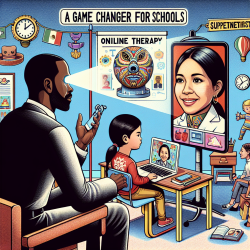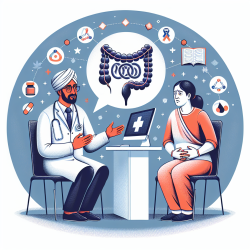The Human Papillomavirus (HPV) is the most prevalent sexually transmitted infection globally. Despite its widespread impact, a recent study reveals alarming gaps in knowledge among Brazilian college students regarding HPV transmission, symptoms, and associated health risks. This blog post explores these findings and offers actionable insights for practitioners to enhance their skills and contribute to public health education.
The Study: Unveiling Knowledge Deficiencies
The study, conducted by Burlamaqui et al., assessed the understanding of HPV among 194 Brazilian college students. The results were eye-opening: many students held misconceptions about the virus's transmission modes and its potential health consequences. For instance, only 12% recognized warts as an HPV-related disease, and a significant portion failed to associate HPV with cancers such as laryngeal and anal carcinomas.
Key Findings:
- Misinformation on Symptoms: Many students incorrectly identified symptoms like bleeding and pain as common manifestations of HPV.
- Lack of Awareness on Transmission: Beyond genital contact, students were largely unaware of other transmission modes like orogenital contact.
- Poor Recognition of Cancer Risks: A majority did not link persistent HPV infections with various cancers beyond cervical cancer.
Implications for Practitioners
The study highlights a critical need for enhanced educational initiatives targeting young adults. As practitioners, we have a pivotal role in bridging these knowledge gaps. Here are some strategies to consider:
- Integrate Comprehensive Education: Develop programs that provide accurate information about HPV transmission, symptoms, and prevention methods. Emphasize the importance of vaccination as a preventive measure.
- Engage in Community Outreach: Host workshops or seminars in schools and universities to raise awareness about HPV-related health risks.
- Collaborate with Public Health Agencies: Work alongside governmental bodies to implement effective public health policies focused on sexual health education.
- Pursue Further Research: Encourage research initiatives that explore innovative ways to disseminate information about sexually transmitted infections among youth.
A Call to Action
The findings from this study serve as a wake-up call for practitioners worldwide. By improving our understanding of HPV and actively participating in educational efforts, we can significantly reduce the spread of this infection and its associated health complications.










